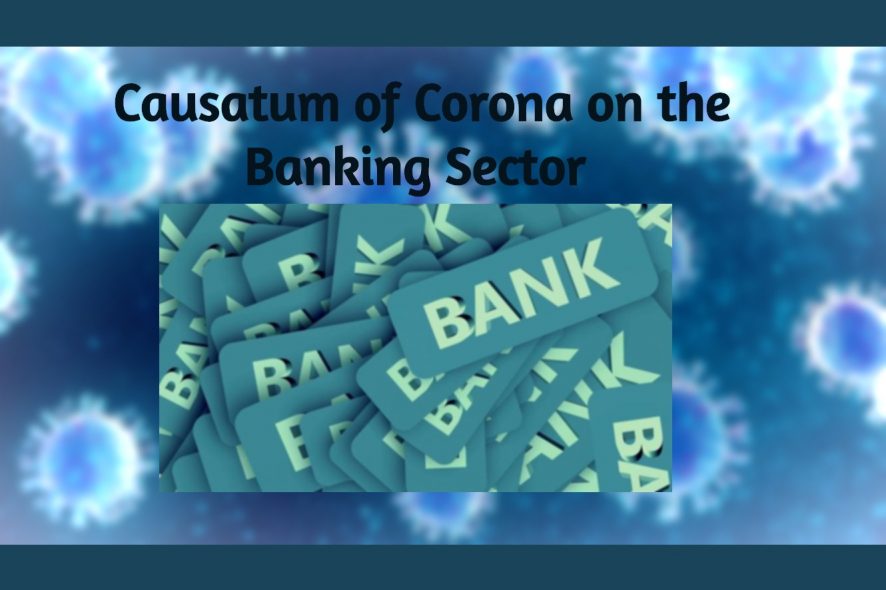In order to soften the global impact of COVID-19 on the banking sector, Reserve Bank of India on 27-3-2020 announced a moratorium for a period of 3 months starting from 1-3-2020 to 31-5-2020 on repayment of all term loans by borrowers including individuals and companies. Clause 5 of RBI statement did not make the moratorium mandatory rather discretionary meaning thereby if a borrower wants, he can pay the EMI with interest and opt out of the moratorium option. On the other hand, if a borrower does avail such a moratorium then that would not lead to downgrading of the borrower’s credit rating or affect the risk classification of the loan. Further, availing the moratorium will not entail any change in the existing terms and conditions of the loan. The interest on EMI, however, shall continue to accrue on the outstanding amount and the collective interest for the 3 months shall become due and payable only after the expiry of deferment period.
This article addresses a set of peculiar issues that have arisen in view of the arrangement of repayment of loans in terms of RBI guidelines and the view taken by Courts in a few cases. The most glaring issue relates to the date of coinciding of an account becoming NPA with the declaration of 3 months moratorium period starting from 01.03.2020.
The Income Recognition and Asset Classification Guidelines (IRAC Guidelines) of RBI provide for a three-stage process before an account is declared as NPA. On default of the first 30 days, the borrower’s account is classified as Special Mention Account–1 (SMA-1) and if the instalment is overdue by 60 days, the account is classified as Special Mention Account–2 (SMA-2) and if the instalment is overdue by a period of 90 days, the account is classified as Non-performing Asset (NPA).
The case of Anant Raj Ltd. v. Yes Bank[1] filed before the Delhi High Court appears to be the first case on the issue as to whether an account having being declared SMA-2 on 01.03.2020 would be eligible to avail the moratorium period or not? The Delhi High Court interpreted the Guidelines in a manner that it provides a status quo even in the classification of any account which is already in default. The Court held that:
“The restriction on change in classification as mentioned in the regulatory package shows that RBI has stipulated that the account which has been classified as SMA-2 cannot further be classified as a non-performing asset in case the instalment is not paid during the moratorium period i.e. between 01.03.2020 and 31.05.2020 and status quo qua the classification as SMA-2 shall have to be maintained.”
The Court further held that:
‘…for a period of three months there will be a moratorium from payment of that instalment. However, stipulated interest and penal charges shall continue to accrue on the outstanding payment even during the moratorium period. If post the moratorium period, borrower fails to pay the said instalment, classification would then automatically change as per the IRAC Guidelines.”
A similar proposition arose before the Bombay High Court in Transcon Sky City Pvt. Ltd. v. ICICI Bank [2], where the question for consideration was whether the moratorium period is excluded in the computation of the 90-day period for amounts that fell due prior to 1-3-2020 and which remain unpaid or in default. The Court prima facie held that the protection sought to be availed by Transcon Sky City by virtue of RBI circulars would clearly apply to all amounts due after 01.03.2020.
Another interesting yet distinct controversy has arisen before the Delhi High Court in Indiabulls Commercial Credit Ltd. v. SIDBI[3] where ICCL challenged the demand raised by Small Industrial Development Bank of India (SIDBI) for the month of April 2020. The Court considered whether the 3-months’ RBI moratorium is applicable to Non-Banking Financial Institutions (NBFC) or not? Unfortunately, RBI has not given any clarity on this issue and to twist the knife, the Indian Bank’s Association (IBA) circular leaves out NBFCs as beneficiaries of 3 month moratorium period. An indisputable argument of the NBFCs is that money is borrowed from the financial institutions in order to disburse loans to low income earners and smaller sectors. Naturally, these sectors will default in repayment by availing moratorium and if the financial institutions do not ease the repayment terms by NBFCs then it would be calamitous.
The orders passed by Delhi High Court and Bombay High Court have met with some criticism from the banking industry, apprehending its possible rippling effect on other accounts, and a possibility of other defaulters taking a shield of such orders to protect their accounts from any further downgrading.
The borrowers claim that the Courts have correctly interpreted RBI circulars to mean that status quo shall be maintained for all term loan accounts maintained with the banks as on 01.03.2020.
It would be interesting to see if the judgments are challenged by the banks or financial institutions, and what is the outcome. For the present however, the Courts have acted with a pragmatic approach to find a solution to the economic and financial difficulties of the borrowers.
*Arjun Garg is Advocate on Record and Partner at GSL Chambers
**Rati Tandon is an Advocate and Associate at GSL Chambers






